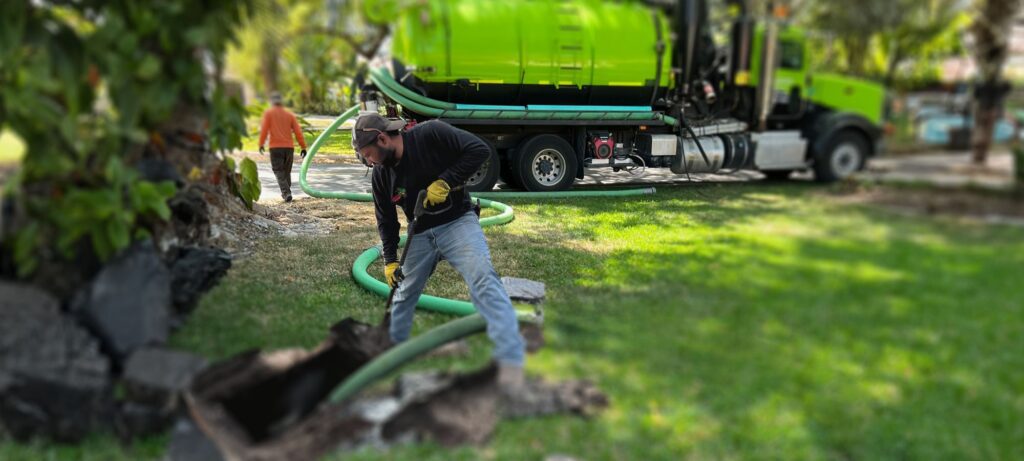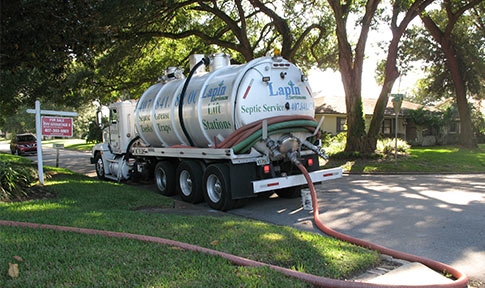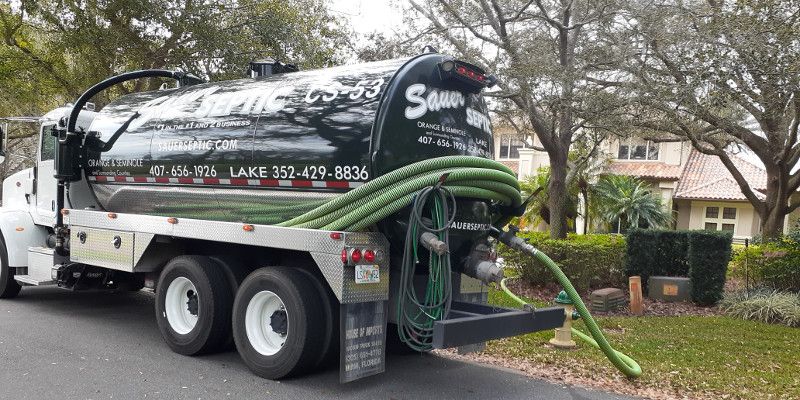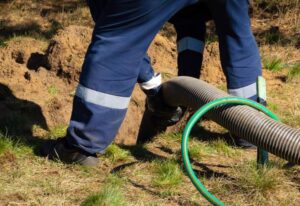FL Septic Tank Cleaning offers professional services for efficient waste removal in the state of Florida. With their expertise in septic tank cleaning, they ensure that your waste is disposed of properly and in an environmentally friendly manner. Their team of experienced professionals use state-of-the-art equipment to thoroughly clean and maintain your septic tank, ensuring its longevity and preventing any potential issues. Trust FL Septic Tank Cleaning to provide reliable and top-notch services to keep your septic system running smoothly.
Importance of Regular Septic Tank Cleaning
Maintaining your septic tank is essential for the proper functioning of your household wastewater system. Regular septic tank cleaning ensures that your system operates efficiently, preventing system failures and costly repairs. It also helps maintain water quality and protects the environment.
Preventing System Failures
One of the main reasons for regular septic tank cleaning is to prevent system failures. Over time, solid waste builds up in your tank, forming a layer of sludge at the bottom. If left unattended, this sludge can accumulate and clog the pipes and drains, inhibiting the flow of wastewater. As a result, you may experience slow drains and flushing, which can be highly inconvenient. Regular cleaning removes the sludge and prevents system failures, keeping your household running smoothly.
Maintaining Water Quality
Septic tanks play a vital role in treating wastewater from your home. Through a natural process, bacteria in the tank break down the waste into solids, liquids, and gases. If your septic tank is not cleaned regularly, the buildup of sludge can hinder this bacterial activity and reduce the treatment efficiency. This can lead to contaminated water seeping into the ground, potentially contaminating your groundwater and nearby water bodies. By scheduling regular septic tank cleanings, you can ensure that your system functions effectively and maintains the water quality in your area.
Avoiding Costly Repairs
Neglecting regular septic tank cleaning can result in costly repairs down the line. When sludge accumulates in your tank, it puts extra pressure on the system, leading to potential damage and failure. Additionally, if the system backs up or overflows, it can cause damage to your property and require expensive repairs or even tank replacement. By investing in regular septic tank cleaning, you can avoid these unexpected expenses and ensure the longevity of your septic system.
Signs that Your Septic Tank Needs Cleaning
While regular cleaning is recommended, certain signs indicate that your septic tank requires immediate attention. Recognizing these signs can help you address potential issues before they escalate.
Slow Drains and Flushing
If you notice that your drains and toilets are draining slower than usual or have trouble flushing properly, it may be a sign that your septic tank needs cleaning. The buildup of sludge in the tank can obstruct the flow of wastewater, causing backups and slowing down the drainage process.
Bad Odors
Foul odors emanating from your drains or your yard can indicate a septic tank problem. As waste accumulates in the tank, it can release gases that produce unpleasant smells. If you notice persistent odors, it is essential to have your septic tank inspected and cleaned to prevent further issues.
Pooling Water or Wet Spots on the Drain Field
If you observe pooling water or wet spots on your drain field, it may indicate a problem with your septic tank. The buildup of sludge or a blockage can impede the absorption of wastewater into the soil, causing it to pool on the surface. This can not only damage your drain field but also create unsanitary conditions. If you notice any signs of pooling water or wet spots, it is crucial to have your septic tank cleaned and inspected promptly.

Benefits of Hiring Professional Septic Tank Cleaning Services
While some homeowners may attempt to clean their septic tanks on their own, hiring professional services offers various advantages. Professional septic tank cleaning companies have the necessary equipment, expertise, and experience to ensure a thorough and efficient cleaning process.
Proper Equipment and Expertise
Septic tank cleaning requires specialized equipment and tools that most homeowners do not possess. Professional cleaning services have state-of-the-art equipment to safely access and clean your septic tank. They also have the necessary expertise to identify any potential issues and provide appropriate solutions, ensuring the optimal performance of your septic system.
Thorough Cleaning and Waste Removal
Professional septic tank cleaning ensures a comprehensive cleaning and waste removal process. The cleaning crew will pump out the accumulated sludge and waste from your tank, leaving it clean and empty. They will also inspect the tank for any potential damage or leaks, giving you peace of mind knowing that your septic system is in good condition.
Preventing Damage to the Tank or Surrounding Areas
Improperly cleaning your septic tank can lead to unintentional damage or contamination. Professional cleaning services have the knowledge and experience to ensure that the cleaning process is carried out correctly, minimizing the risk of damaging the tank or surrounding areas. By hiring professionals, you can avoid potential costly repairs resulting from mishandling or misdiagnosing septic tank issues.
Process of Professional Septic Tank Cleaning
When you hire professional septic tank cleaning services, they follow a set process to thoroughly clean and maintain your septic system.
Tank Inspection
The cleaning crew will begin by inspecting your septic tank for any signs of damage or leaks. They will assess the level of sludge and scum, as well as the overall condition of the tank. This inspection allows them to tailor their cleaning process to address any specific issues or concerns.
Pumping and Waste Removal
Once the inspection is complete, the crew will proceed with pumping out the accumulated sludge and waste from your septic tank. This process involves using powerful vacuum trucks to extract the contents of the tank safely and efficiently. By removing the buildup, your septic system can continue functioning optimally.
Cleaning and Sanitization
After the waste removal, the cleaning crew will thoroughly clean and sanitize the interior of your septic tank. This step ensures the removal of any remaining debris or residue that may impede the system’s performance. By sanitizing the tank, they help create a clean and healthy environment for the bacteria to continue breaking down waste effectively.
Inspection and Repairs
Once the cleaning and sanitization are complete, the crew will conduct a final inspection of the septic tank. They will check for any damage, leaks, or signs of deterioration that may require immediate attention. If any repairs are needed, they will provide recommendations and can often perform minor repairs on the spot. This comprehensive inspection ensures that your septic system is in good condition and ready to handle your household wastewater efficiently.

Factors Influencing the Frequency of Septic Tank Cleaning
The frequency of septic tank cleaning varies depending on several factors. Understanding these factors can help you determine how often you should schedule professional cleaning services for your septic system.
Tank Size and Usage
The size of your septic tank and the amount of wastewater it receives directly influence the cleaning frequency. Larger tanks can hold a larger volume of waste, meaning they can potentially go longer between cleanings. Similarly, households with lower water usage may require less frequent cleaning compared to those with higher water consumption.
Number of Household Members
The number of people living in your household affects the frequency of septic tank cleaning. More occupants generally result in higher water usage and an increased amount of waste entering the septic tank. Consequently, households with more members may need more frequent cleanings to prevent system overloads.
Presence of Garbage Disposal
If your home has a garbage disposal unit, it can significantly impact the frequency of septic tank cleaning. Garbage disposals introduce solid waste and food particles into the septic system, increasing the amount of sludge and potentially clogging the pipes. Homes with garbage disposals often require more frequent cleanings to maintain optimal system performance.
Type of Waste Flushed
The type of waste that enters your septic system can affect how often it needs cleaning. Certain materials, such as non-biodegradable items or excessive quantities of cleaning products, can accumulate in the tank and hinder its proper functioning. It is important to be mindful of what you flush down the drains and toilets to avoid excessive sludge buildup and the need for more frequent cleanings.
Importance of Regular Maintenance in Septic Tank Cleaning
In addition to regular cleanings, ongoing maintenance plays a crucial role in prolonging the lifespan of your septic system and ensuring its optimal performance.
Inspecting the Tank for Damage or Leaks
Regular inspections of your septic tank can help identify any potential issues before they escalate. Checking for signs of damage or leaks allows you to address them promptly, preventing further deterioration and potential system failures. Professional septic tank cleaning services often include inspections as part of their maintenance packages, providing you with peace of mind.
Checking the Levels of Sludge and Scum
Monitoring the levels of sludge and scum in your septic tank is essential for its proper functioning. If these layers become too thick, they can obstruct the flow of wastewater and lead to backups or system failures. Regular maintenance involving sludge and scum measurement helps determine when your tank requires cleaning, ensuring the optimal performance of your septic system.
Maintaining the Drain Field
The drain field is an integral part of your septic system, responsible for the final treatment and dispersal of wastewater. Regular maintenance and inspections of the drain field help ensure that it remains in good condition. This includes monitoring the soil absorption capabilities, checking for any signs of pooling water or wet spots, and addressing any potential issues promptly. By maintaining the drain field, you can extend the lifespan of your overall septic system.

Consequences of Neglecting Septic Tank Cleaning
Neglecting regular septic tank cleaning can have serious consequences not only for your system but also for the environment and your wallet.
System Backups and Failures
When you neglect septic tank cleaning, the accumulation of sludge can clog pipes and obstruct the flow of wastewater. This leads to backups, causing toilets to overflow, drains to become slow or blocked, and overall system failures. Dealing with these issues can be highly inconvenient, not to mention costly to repair or replace.
Contamination of Groundwater
A neglected septic tank can lead to contamination of the groundwater, which serves as a source of drinking water for many communities. If wastewater from your septic system seeps into the ground, it can carry harmful bacteria, pathogens, and pollutants with it. This poses a significant health risk to both humans and animals who rely on the affected water sources. Regular cleaning and maintenance help prevent such contamination, ensuring the safety of your groundwater.
Environmental Hazards
The untreated wastewater from a neglected septic tank can also pose environmental hazards. When wastewater contains high levels of nutrients and chemicals, it can cause algae blooms and harm aquatic ecosystems. The presence of bacteria and pollutants can negatively impact the flora and fauna in surrounding water bodies. By maintaining and cleaning your septic tank regularly, you contribute to the protection of the environment and the preservation of natural habitats.
Expensive Repairs or Tank Replacement
Neglecting septic tank cleaning can result in costly repairs or even the need to replace the entire tank. System failures, damage to pipes, and contamination of the soil can necessitate extensive repairs that can quickly add up in terms of expenses. Regular cleaning and maintenance help prevent these issues, saving you from the financial burden of extensive repairs or the need for a complete tank replacement.
Tips for Maintaining a Healthy Septic System
In addition to scheduling regular septic tank cleanings and maintenance, incorporating a few simple habits can help maintain a healthy septic system.
Conserving Water
Conserving water reduces the strain on your septic system and extends its lifespan. Simple steps such as fixing leaky faucets, using water-efficient appliances, and spreading out household chores that require large amounts of water can significantly reduce your water consumption. By conserving water, you help minimize the volume of wastewater entering your septic tank, leading to less frequent cleanings and a more efficient system.
Proper Waste Disposal
Being mindful of what you flush down the drains and toilets is crucial for maintaining a healthy septic system. Avoid disposing of non-biodegradable items, such as plastics, diapers, or feminine hygiene products, as they can clog the pipes and hinder the treatment process. Additionally, harsh chemicals and excessive amounts of cleaning products can disrupt the bacterial activity in your septic tank. Opt for environmentally-friendly alternatives and use them sparingly to support a healthy septic system.
Regular Inspections and Pumping
Schedule regular inspections and pumping with professional septic tank cleaning services to ensure the ongoing health of your septic system. Professionals can assess the condition of your tank, detect any potential issues, and provide the necessary maintenance. Regular pumping removes accumulated sludge and facilitates proper wastewater treatment, prolonging the life of your septic tank.
Avoiding Harsh Chemicals
Harsh chemicals, such as strong household cleaners, pesticides, or paint thinners, can harm the bacteria responsible for breaking down waste in your septic tank. These chemicals can disrupt the natural treatment process and hinder the effectiveness of your septic system. Instead, opt for environmentally-friendly cleaning products and avoid pouring chemicals down the drains or toilets.

Questions to Ask When Hiring Septic Tank Cleaning Services
When selecting a professional septic tank cleaning service, it is essential to ask the right questions to ensure you are hiring a reliable and experienced company.
Are They Licensed and Insured?
Always inquire about the licensing and insurance of the septic tank cleaning service. A licensed and insured company demonstrates their commitment to professionalism and ensures that they meet the necessary legal requirements. Insurance provides protection in case any damage occurs during the cleaning process.
Do They Have Experience in Septic Tank Cleaning?
Experience is a crucial factor in selecting a septic tank cleaning service. Inquire about the number of years they have been in business and their expertise in servicing septic systems. An experienced company will have encountered various issues and can provide efficient and effective solutions.
What is Their Process and Equipment?
It is important to understand the process and equipment used by the septic tank cleaning service. Inquire about the specific steps they take during the cleaning process, including their inspection methods, waste removal techniques, and cleaning and sanitization procedures. Additionally, ask about the equipment they use to ensure they have modern and reliable tools for the job.
Do They Offer Emergency Services?
Septic system emergencies can occur outside of regular business hours. It is important to know if the cleaning service offers emergency services, should you ever need immediate assistance. Prompt attention during emergencies can help prevent further damage and protect your property.
Conclusion
Regular septic tank cleaning is vital for maintaining the functionality of your wastewater system, protecting water quality, and avoiding costly repairs. Recognizing the signs that your septic tank needs cleaning, hiring professional services for efficient cleaning, and scheduling regular maintenance are all essential for the health and longevity of your septic system. By taking proactive steps and incorporating good septic system practices, you can ensure the efficient and proper treatment of your household wastewater while protecting the environment and your investment.

